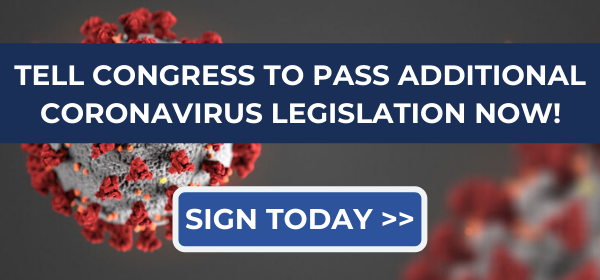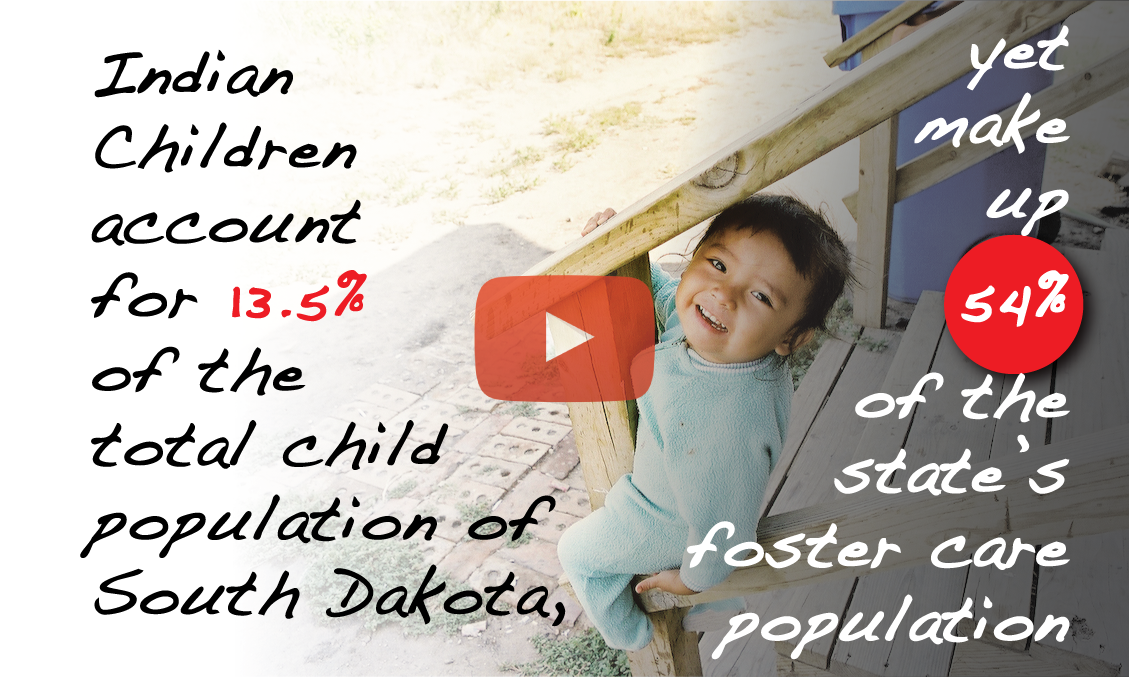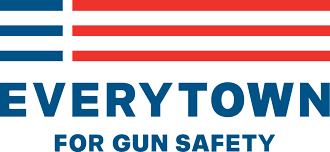 |
| We need stronger advocates for the poor and struggling in the US! Who can we turn to? |
A Look Into Faith and Activism
by C.A. Matthews
by C.A. Matthews
Clergypersons who live their faith out loud, boldly and with distinction, have
My grandfather, the Rev. Jack Johnston, worked tirelessly as a missionary in the slums of Sao Paolo, Brazil, during the 1920s-30s. Addressing the social and spiritual needs of the poorest of the poor were paramount to him and my grandmother. At the start of World War II he returned home and joined the Army, serving as head chaplain of General George S. Patton's division in Europe during such actions as the Battle of the Bulge. I remember my grandfather being rather soft spoken and not a particularly physically imposing person by any stretch of the imagination, so you can imagine the quiet inner bravery he must have possessed advocating for the hearts and souls of his soldier-charges while conversing with "Old Blood and Guts" Patton in those bloody battlefields.
I think wearing a clerical collar and carrying a Bible can instill courage in a social justice activist every bit as much as carrying a sign or a loaded weapon--if not more so. Read my review of Ted's story below and see if you don't agree.
And now a special book review for the
WOW! WOMEN ON WRITING BLOG TOUR
May I Die In Your Church?
A Closer Look Into The Life And Times Of An Activist/Priest
Acts of Forgiveness: Faith Journeys of a Gay Priest
Ted Karpf
Foreword by Ray L. Hart
Toplight Books
ASIN: B081Y8LHZN, ISBN-10: 1476679592, ISBN-13: 9781476679594
A Closer Look Into The Life And Times Of An Activist/Priest
Acts of Forgiveness: Faith Journeys of a Gay Priest
Ted Karpf
Foreword by Ray L. Hart
Toplight Books
ASIN: B081Y8LHZN, ISBN-10: 1476679592, ISBN-13: 9781476679594
“I have learned
that while we can’t always see the real outcomes of the victories
of our battles for justice, inclusion, acceptance, and respect, each
of us in our own way has won those liberties, not with the ease of
largesse and privilege, but with an understanding that no matter the
cost, what we did/do and why we did/do it was critical for the larger
humanity.”
Retired Episcopalian
priest Ted Karpf’s engaging memoir, Acts of Forgiveness, can
be read on several levels. First, it’s the life story of a gay man
overcoming an abusive childhood and coming out to a hostile society,
receiving some modicum of success while working during different
seasons of his life for the church, the federal government, and the
World Health Organization. Second, it can be understood as the
experiences of a social justice warrior who jumped into the early
fight to bring health and dignity to the thousands dying of HIV/AIDS
in the Dallas gay community and later to the millions infected in
South Africa and surrounding countries. Third, and perhaps most of
all, it is the journey of an individual seeing God at work in the
world and its people while accepting the fact that to have faith
doesn’t mean one will be protected from heartache, harsh
criticisms, or even tougher judgments, but knowing that one will find
love, peace, and joy along the way.
“How many times do
we forgive?”Jesus of Nazareth’s disciples asked him. He replied,
“Seventy times seven” or an infinite number of times. “Father
Friendly,” as Karpf was nicknamed, would agree, but would also
agree that forgiveness doesn’t always come quickly or easily. From
an early age, Ted knew he was different. His parents sensed his
homosexual orientation and attempted to keep him from becoming a
“sissy” through verbal, emotional, and sometimes physical abuse.
After he left home, he found hard-won self-acceptance with the
support of his mentors during his academic years at Boston University
School of Theology. He learned to follow his heart when supporting
others and to love them unconditionally even when it hurt, a lesson
that would be tested again and again in his relationships with his
lovers, colleagues, and particularly later in life with his adult son
and daughter.
When Ted’s
marriage dissolved after he fell in love with a fellow activist and
was outed as a gay man in the paranoid climate of the late 1980s, Ted
lost his church in Dallas, St. Thomas the Apostle, a congregation
that had become particularly noteworthy for its open acceptance and
support of those afflicted with HIV/AIDS. He was fortunate that his
soon-to-be-ex-wife Kaye wanted Ted to co-parent their young children
as much as possible, but life outside of the church brought a new
chapter in his service to others and new challenges both
professionally and emotionally.
Ted’s work within
the Dallas area HIV/AIDS community had gained him the attention
of—and then a position with—the US Public Health Service as a
regional liaison specialist to call attention to the magnitude and
impact of the AIDS epidemic in five states. After three years at the
USPHS, Ted returned to AIDS advocacy within the Episcopal Church in
the Washington DC diocese. From there he was called to serve the
Anglican Community in South Africa in the 1990s where the spread of
HIV/AIDS had become a tragedy of almost unimaginable proportions. His
service there was praiseworthy and necessary, but then it was
terminated abruptly and he was falsely accused of a crime that he
could have never committed.
Ted was eventually
exonerated—through the testimony of Archbishop Desmond Tutu, among
others—but once again he found himself seeking a way to forgive and
move on and to serve humanity, which eventually he did through the
auspices of the Diplomatic Corp of the United Nation’s World Health
Organization. He advocated strongly for the “3 by 5” program, a
program to reach 3 million needing treatment out of the estimated 6
million infected with HIV/AIDS globally by 2005. The goal was
obtained by 2006 and saved literally millions in developing world.
Ted worked tirelessly from Geneva until his retirement from WHO
in 2010.
“May I die in your church?”
“May I die in your church?”
A man covered with
lesions from Kaposi’s sarcoma and suffering from tuberculosis and
the severe wasting associated with AIDS walked into Ted’s church
office in 1985 making that simple request. “Everything in my life
before that moment paled,” Ted states, “The desperate sincerity
of the question combined with his grim motivation resonated deeply
within me.” The acceptance of death in the midst of day-to-day
existence is a recurring theme throughout Ted’s life, be it the
death of friendships, of work relationships, or most poignantly, of
an ailing stranger or a dear loved one.
From the earliest
days of the AIDS epidemic, Ted has sat by more bedsides and performed
more funerals of individuals, some cruelly rejected by their own kin,
than perhaps any other priest. He also sat by the side of his
mother as she lay dying, forgiving and loving her in spite of his unhappy childhood
experiences. Ted has been there for many others in
their time of personal tragedy, a source of comfort and advice, but
he is quick to note that he isn’t always as accepting of loss as he
could be.
After his abrupt
dismissal from his position in South Africa, Ted felt directionless
and decided to accept an offer to walk the Camino de Santiago
in Spain. He didn’t want to go at first, but a series of
coincidences finally convinced him that going on a pilgrimage was
exactly what he needed. Hiking the 800 km trail, Ted experienced blisters and then found God along the way in the way the Creator worked in the lives of his fellow sojourners. An impromptu baptism of a pilgrim in the fountain at
Santiago at the end of the journey brought his life into sharp focus. Ted reconfirmed his service to humanity by demonstrating
God’s love through his calling as a priest and advocate for
all who are in need.
Perhaps the greatest
act of forgiveness is the one we grant ourselves when we discover
and re-affirm our own purpose in the eternal dance of life and death. Ted's story bears witness to this truth.
Ted
Karpf is a priest, public servant, international diplomat,
journalist, university administrator and educator. He was educated in
New York, Texas and Massachusetts. A gay man, Ted is a father and
grandfather. He has been and remains a man who reflects the times in
which he has lived while offering a hopeful vision for the future.
Ted watches clouds and tests the winds and prays while residing in
Santa Fe, New Mexico.
You
can find Ted at his website https://www.tedkarpf.com/
Acts
of Forgiveness is now
available to purchase on Amazon.com, Target.com,
and Barnes
and Noble.
***

Criminal-justice reform experts have been warning for weeks: Prisons and jails will become deadly COVID-19 vectors if immediate action is not taken to reduce their population sizes.
It's already beginning. Inmates and guards alike are testing positive at federal and local facilities from California to New York. Fearing the coming virus, nine women escaped from a South Dakota jail and two terrified Alabama inmates threatened to commit suicide with homemade nooses.
In Matthew 25, Jesus tells us that when we care for the sick and for those in prison, we care for him. We might be social distancing, but we can still practice social solidarity by slowing the spread of this devastating pandemic in America's prisons.
Tell America's governors: Fight COVID-19 by reducing state prison populations
More than two million people are currently incarcerated across the U.S. Many prisoners are vulnerable and at heightened risk -- especially the elderly, immunocompromised, sick, and pregnant. They are held in overcrowded conditions ripe for rapid viral spread, with limited access to healthcare or necessary sanitation.
But there is momentum for change: Earlier this week, Los Angeles County announced that it has reduced its incarcerated population by 10%, releasing 1,700 people from jail. A handful of other jurisdictions -- Cleveland, Nashville, the state of New Jersey – are also beginning to take action.
This is a good start, but a few places here and there is simply not enough. To avoid preventable deaths, we need widespread action in every city, county, and state, and at the federal level.
The National Council of Churches, the Brazilian Bishops' Conference, Chicago's religious leaders, and many more have been courageously speaking out for coronavirus prison reform. Add your name to echo their faithful calls for justice in the halls of your governor's office today.
Tell America's governors: Fight COVID-19 by reducing state prison population
We will also send this petition to the federal Bureau of Prisons.
Thank you for everything you do to love your neighbor and put your faith into action during these uncertain times.
In peace,
- Rev. Nathan and the Faithful America team
"But let justice roll down like waters, and righteousness like an ever-flowing stream." - Amos 5:24
***
|
|
 |
The Trump administration just gave polluters a free pass to pollute our air and water with impunity.
Using the COVID-19 pandemic as cover, Trump's EPA announced it will
no longer enforce legally mandated public health and environmental
protections nationwide — indefinitely, while the pandemic crisis lasts.
Letting oil refineries, chemical plants and other industrial polluters off the hook is disgusting and shamelessly opportunistic.
Never before has the EPA just given up and stopped enforcing its own rules at this scale.
The pandemic has upended what is normal for everyone, but that's not an excuse to toss aside environmental protections.
We've seen countless attacks from the Trump administration on
wildlife and the laws that protect it. The Endangered Species Act is
already under tremendous threat from being weakened in its ability to
save plants and animals.
Now, with the EPA turning a blind eye to industrial pollution, our
public health could be even more seriously threatened. This cynical ploy
is a new low, even for this administration.
***

We support the call to pass House Coronavirus Bill - HR6201 - Families First Coronavirus Response Act because it provides critical resources for food assistance, testing, unemployment insurance, immediate paid sick days, and protection for health care workers. Importantly, this bill also includes things the Poor People’s Campaign: A National Call for Moral Revival has been demanding for a long time — a suspension of work requirements for SNAP, worker protections in the form of paid sick leave, increased resources for Medicaid and free testing for all, including the uninsured.
In this moment, we must join the call to demand that our government face this crisis — we cannot go back to business as usual. We call on each of you to reach out to your Senators to vote and pass this bill immediately (see below for a call script you can use).
This bill alone, however, will not fully address this crisis, nor the ongoing crises of poverty and inequality in this country. We call for important additions to the bill, listed below. Many of these demands are already a part of the Poor People’s Campaign: A National Call for Moral Revival’s Moral Agenda. It’s clear we need them now more than ever:
- We demand more targeted and specific protections for low-wage and
temporary workers, including child care workers and care providers.
Rapid, direct payments to individuals is the most effective way to
ensure low-wage workers who are especially sensitive to changes in work
schedules have the resources to provide for their families and
households and to manage their care and treatment.
- We demand targeted and specific protections for homeless people,
including and especially children, who will not have access to online
learning, meals, or running water outside of their schools; this can and
must include a call on city and local governments to open and prepare
vacant properties to house the homeless.
- We demand a national moratorium on evictions, tax foreclosures, and rent hikes.
- We demand a national moratorium on water and utility shut-offs and maintained access to communications and Wi-Fi.
- We demand a national moratorium on medical debt collection that
would compromise an individual, family or household’s ability to provide
for their health and care during this emergency.
- We demand a suspension of Medicaid work requirements.
- We demand the reauthorization and protection of community health
centers and rural hospitals, including the suspension of any pending
closures of rural hospitals.
- We demand targeted protections for people in mental health
facilities, prisons, jails, immigrant detention centers, juvenile
detention centers, and nursing homes, especially in the form of
supplies, personnel, testing and treatment.
- We demand that immigrant communities are able to seek safe
testing and treatment by suspending CBP and ICE enforcement and
declaring all emergency provisions as disaster relief, thereby making
immigrants who are otherwise ineligible for health care, nutrition and
other government programs eligible for these emergency programs.
- We demand that nobody — no individual or corporation or financial
interest — is profiting off a public health crisis by ensuring that
vaccines and treatments are affordable and/or free for those who cannot
afford the costs.
Thanks to MomsRising for providing this service.
You can adapt the following script with your Senator's info when you call. Most importantly, strongly encourage them to vote for this bill!
“Hello, my name is ______ and I am from [city/town]. This is urgent: Please tell Senator _____ to vote for the House coronavirus bill without watering it down at all. You must take action to ensure that no one goes without food, that everyone can get testing, medical treatment, paid sick days or unemployment insurance if they can’t work during this emergency and that our health care workers are protected. The House bill is a necessary start — you must do more [add 2-3 examples from our list above], but please vote for this now.”
Let’s continue to mobilize, organize, register, and educate for our demands in this uncertain time.
Forward together,
The Poor People’s Campaign: A National Call for Moral Revival























